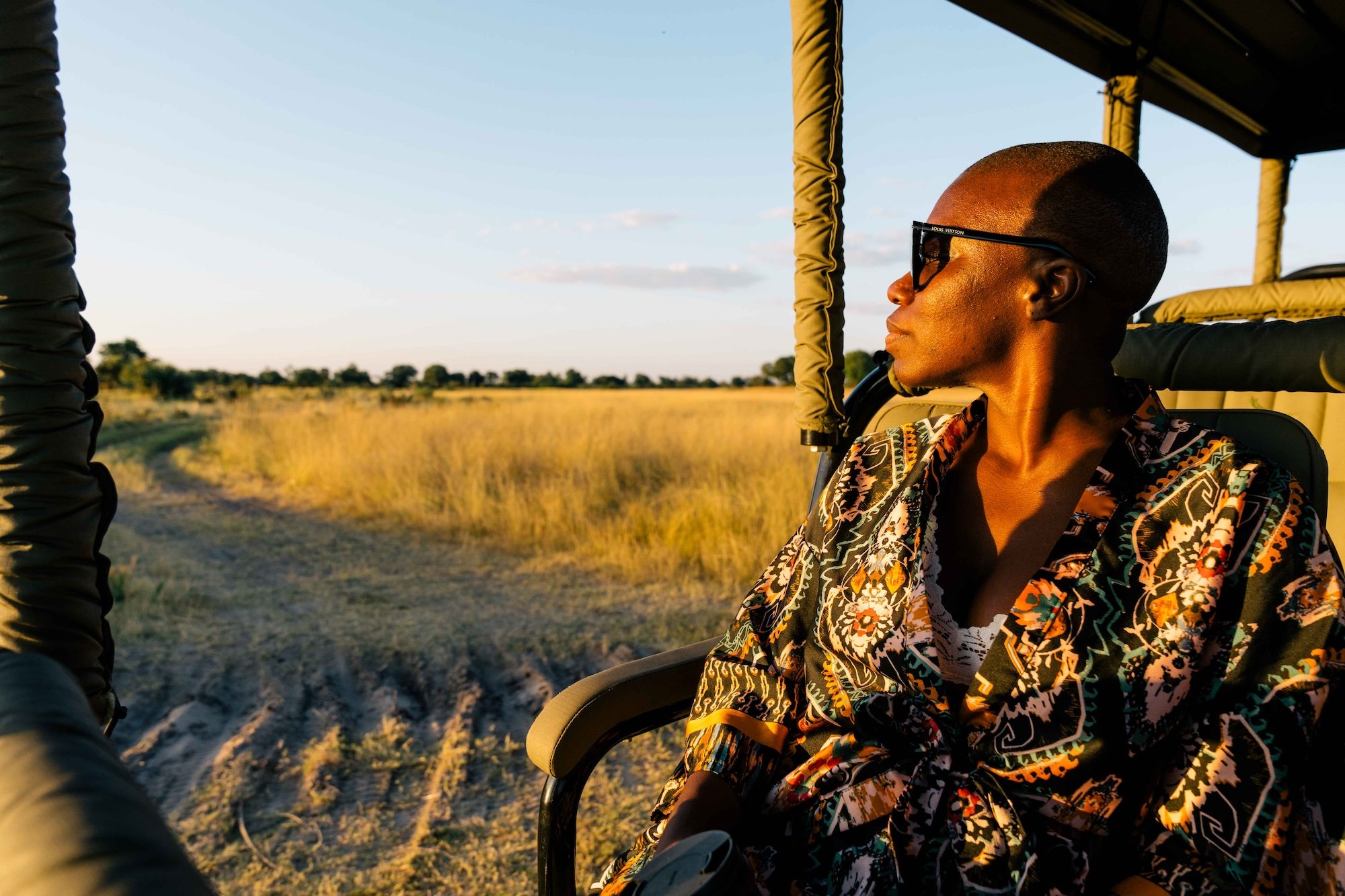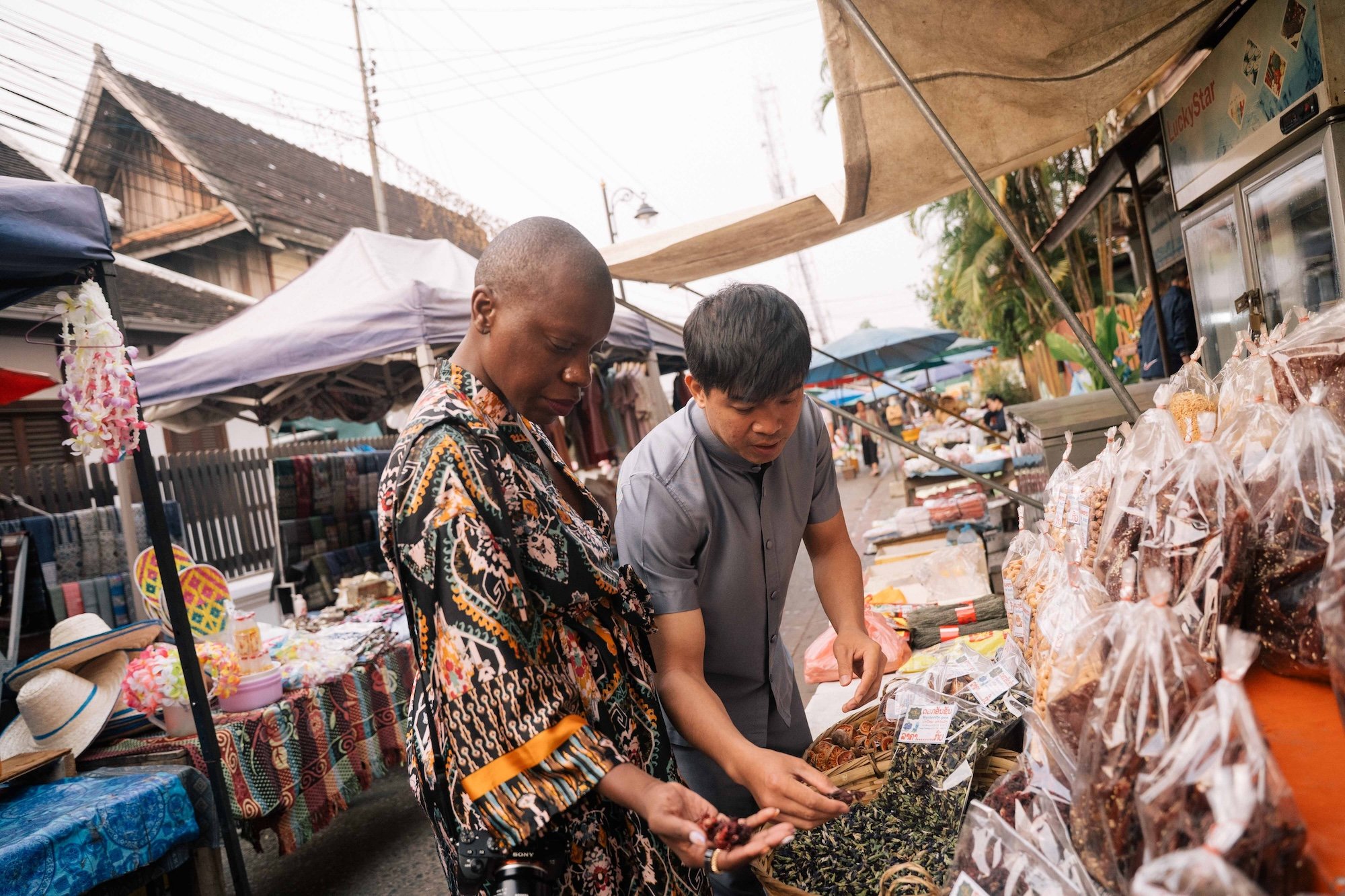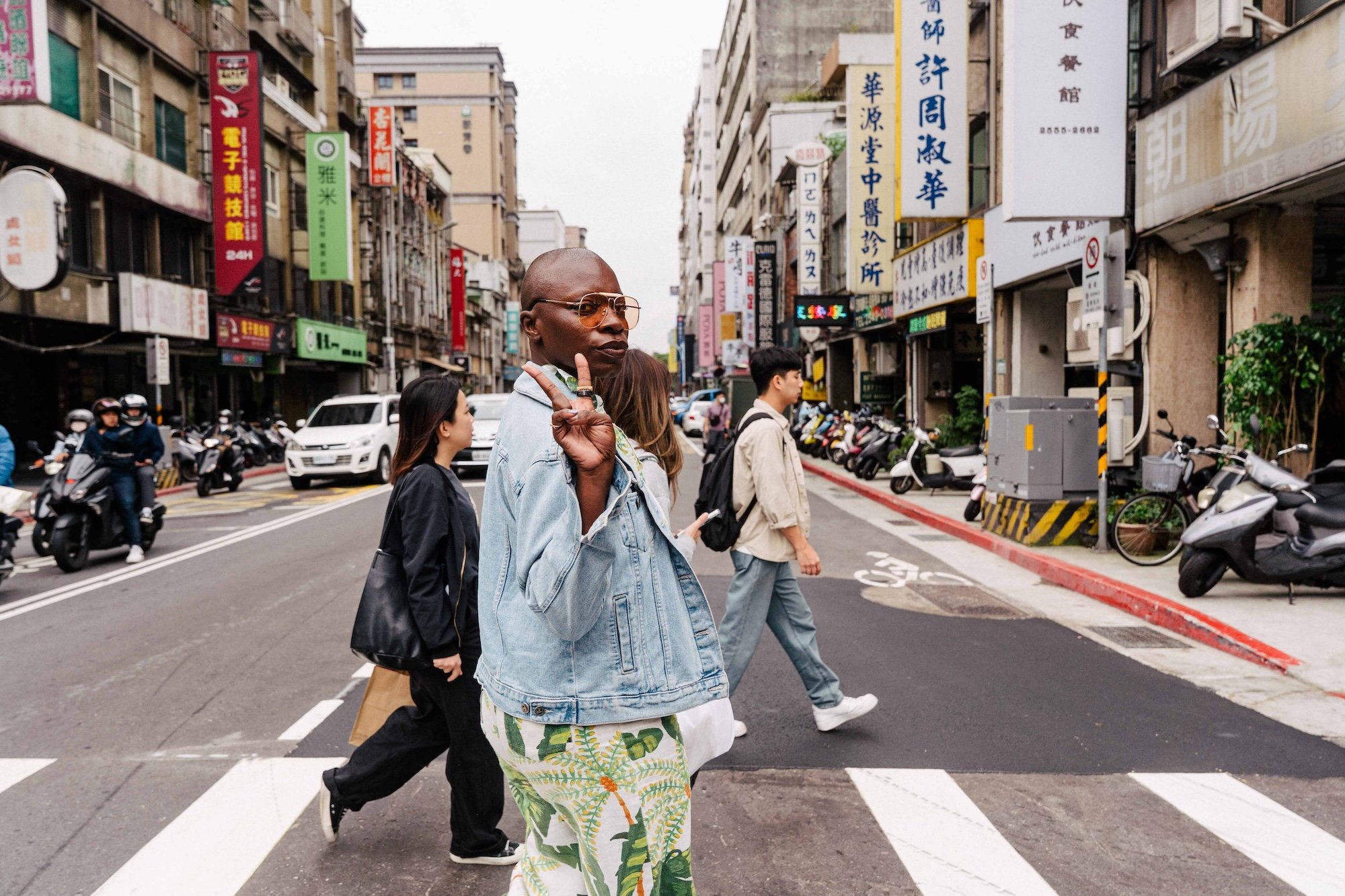A lot can be said about the number of places that globe trotter Jessica Nabongo — born in Detroit to Ugandan parents — has found a sense of home in, but more needs to be said about the number of things that have found a sense of home in Jessica herself.
For starters, there’s a plethora of languages that slip off of her tongue, moving like liquid from Italian to French and back to English depending on who she’s speaking to. An unapologetic confidence lives in her, one that greets you long before her voice does. An empathetic open-mindedness resides within her, one that allows her to view the world from multiple perspectives so she can better connect with the people around her, no matter where on Earth her feet may land.
Nabongo is undoubtedly a woman of the world, and it is her deep belief in humanity that has led her to become such. In 2019, the then 35-year-old completed a rather significant goal: to become the first Black woman to travel to all 195 countries on Earth. This goal wasn’t just something to tick off of a bucket list —it was loaded with the weight of bringing a sense of humanity to places that never had the privilege to receive it.
“I’m continuing to evolve and continuing not only to implement the lessons I’ve learned from that journey into my life, but also using what I’ve learned, my storytelling, and my platform, to continue to tell stories about places that many people don’t hear positive stories about, and to continue humanizing people through my work,” she told Global Citizen.
At the brink of ending her journey in 2019, Nabongo spoke to Global Citizen, explaining that her main ambition was to show various cultures in a dignified way, in order to challenge the Western gaze. Typically, when Global South countries have been showcased on international platforms, they have been viewed through the eyes of those who sought to distance themselves from the cultures and diversity of the rest of the world.
 Author and humanitarian Jessica Nabongo pictured on Safari in Botswana.
Author and humanitarian Jessica Nabongo pictured on Safari in Botswana.
It’s always been true that those who have the power to tell the story, direct the narrative — regardless of whether that narrative is accurate. Nabongo’s work has been to challenge the narratives set by those who have always had the power. In the six years since Nabongo completed her worldwide travel journey, the effort to subvert this gaze has only intensified.
“As a Ugandan, inherently challenging the Western gaze will always be my fight,” she explained. “As a Black woman and as an African woman, not only living in the west, but with access to these huge platforms that are important to people in the west I will continue to use my voice to highlight that we’re all the same.”
She continued: “One of the biggest lessons that I learned from visiting every country in the world is that we’re more similar than we are different, so we have to get past all of this nonsense of focusing on, and being divided by, our differences.”
Nabongo acknowledges that she is not the only one doing this work, rather, through the opening of the world on social media, more and more people are taking to online platforms to showcase the realities of their existence across the globe. From reels about issues in the Middle East to TikTok videos about life in Cameroon, Nabongo commends those who are realizing the power they have to tell their own stories, observing that this personal storytelling about diverse cultures and lifestyles across social media is critical for global unity.
“Right now, what we’re seeing is this global concentration and power grab — all of the money, the wealth, and the power, is slowly concentrating into less and less hands as the world becomes more authoritarian,” she said. “Now, more than ever, challenging this narrative is important, because, for those of us that are not in that power class, we’ve got to stick with each other, we’ve got to build community across borders.”
 Known for connecting with the cultures around her on her global travels, Jessica Nabongo can be seen here visiting a market in Laos.
Known for connecting with the cultures around her on her global travels, Jessica Nabongo can be seen here visiting a market in Laos.
This year, on July 10, Nabongo will host Global Citizen NOW: Detroit, a thought leadership summit calling for urban revitalization in her hometown, Detroit, Michigan. The aim of the summit is to stimulate the shaping of thriving, inclusive, and creative cities for all people that live within them. Among her favorite things about the place she grew up in, Nabongo counts the ability to see Black people flourishing, a sense of community, and a rich diversity that glitters across the city.
“What a lot of people don’t realize about Detroit is that it is so ethnically diverse. I grew up in an immigrant community, for instance, my parents' friends — my dad’s best friend was Indian, and my mom’s best friend was Filipino, there were Congolese and Kenyans in the community,” she said. “There’s also a huge Polish community, I went to private school and there was a Jewish and Chaldean community — also, Detroit has the largest population of people from the Middle East in the United States of America. For me, that’s what I love. I love the ethnic and racial diversity. Detroit just has soul.”
Urban poverty has settled in Detroit, where the foreclosure crisis, economic restructuring, and high unemployment rates, among other things, have led to the city having a poverty rate three times higher than the US national average. As a result, many live without access to adequate housing, essential resources, and above all things, dignity. This has left room for gentrification, the rise of which — leading to the internal displacement of people of color — is a significant fear for many and has become an enemy of equality for Detroit.
“My biggest hope for the city is that there is not a massive erasure of Black people. I want Detroit to be a place where everyday people can live good lives,” Nabongo said.
She added: “For me it’s not about bringing in five-star hotels, and having bigger skyscrapers — I want smooth roads so I can ride my bike and not lose a tire, if you know what I mean. So much of what’s happening in American cities is that [city living] is only for rich people. In the ‘70s there was the creation of the suburbs, and people were fleeing to the suburbs, and now they’ve decided they want to come back into the cities, but those people who were left in the cities, we’re now pushing them out, and I’m just like, can we not?”
 Jessica Nabongo pictured in Taipei. Having visited every country in the world, Nabongo has concluded that a place's power lies in its people.
Jessica Nabongo pictured in Taipei. Having visited every country in the world, Nabongo has concluded that a place's power lies in its people.
Detroit has an abundance of potential to become a place where diversity drives prosperity. Nabongo noted that it’s in investors connecting to the city’s people that will bring this about and prevent Detroit’s narrative being driven by those who do not call it home. After all, having traveled the world and connected to hundreds, perhaps thousands, of people from different backgrounds, Nabongo has concluded that positive change lies not in a place, but in its people.
“For me, home is in people. I feel deeply connected to human beings, no matter where I am, no matter the language, I’m someone who will always find a way to connect with people. I’m realizing that, the more life experiences that I’ve had, the current experiences that I’m having, what makes the memory is the connection you have with people,” she said.
You can watch Global Citizen NOW: Detroit on our livestream here.